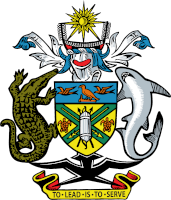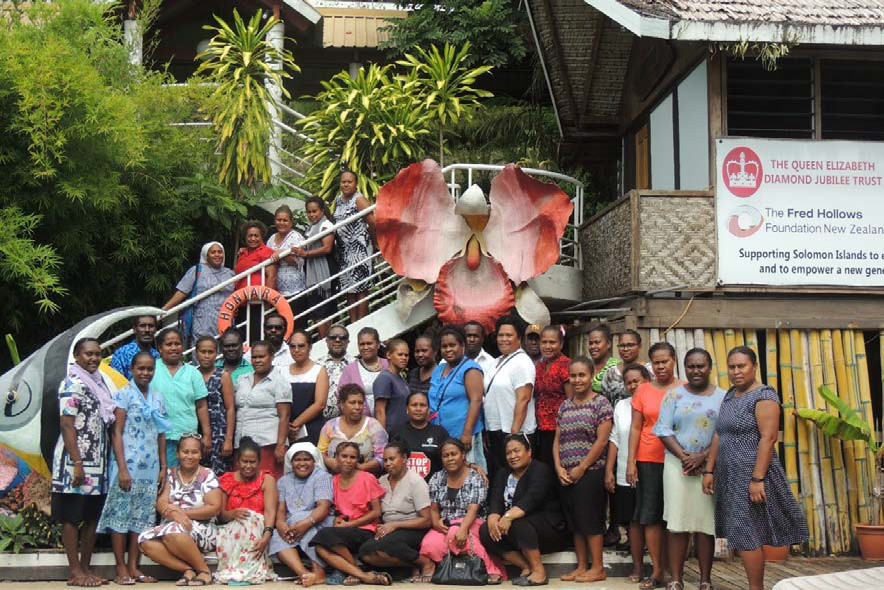Support for women and girl survivors of sexual and gender-based violence continues to improve as SAFENET Referral Network member numbers continue to increase.
SAFENET consists of government and non-government organisations who provide services for survivors of sexual and gender-based violence (SGBV).
This escalation in support for SAFENET follows last week’s completion of a nine-province series of workshop consultations held over two months, coupled with the network’s recent quarterly meeting that attracted more than 40 participants challenging each other to improve their services.
New members include representatives from local civil society, women and faith-based groups who play a key role in referring survivors of gender-based violence to support services who live in remote villages.
“It’s so exciting to see SAFENET growing stronger, bigger, more coordinated and become truly survivor-centred!” said SAFENET Coordinator, Juliana Zutu.
“This approach brings a lot of hope to women and girls who are survivors of Gender-Based Violence”.
The 40 participants who attended the quarterly meeting, held on 5th to 6th June 2019 in Honiara, focussed on the SAFENET approach to ensure all frontline service providers – from police to hospital, social welfare and crisis centre staff – are better coordinated and continuously improve the quality of their services.
The regular meeting enables the network members to progress their work to strengthen response, referral and coordination of Sexual and Gender Based Violence (SGBV) services in the Solomon Islands.
“It’s interesting to see how these regular meetings are turning into avenues where Gender-Based Violence service providers across the different sectors - such as police and health and social welfare - are monitoring their own members’ services against SAFENET’s best practice and protocols.
“SAFENET members are using this forum to professionally learn from each other, challenge each other, and even suggest best practice solutions to each other, to ensure we each offer “no harm” service practices that are in the best interest of the victim,” said SAFENET Coordinator, Juliana Zutu.
In Solomon Islands, data indicates about 64 per cent1 of the nation’s women experience physical or sexual intimate partner violence - twice the global average.
Supervising Director, Ministry of Women Youth Children and Family Affairs (MWYCFA), Women’s Development Division, Vaela Ngai, said: “By better coordinating referrals for survivors, and more clearly linking and connecting frontline services, we significantly increase the likelihood of women and girl survivors getting the quality help they need, when they need it.”
SAFENET has been operating in Solomon Islands since 2008 – formalised via a Memorandum of Understanding (MoU) in 2013 – and over the past eight years, the network’s members have developed the SAFENET Standard Operating Procedures; SAFENET governance systems; minimum standards and data collection; and SAFENET guiding principles and survivor-centred approaches. The network’s survivor-centred approach is clearly outlined in the SAFENET Guidebook of Standard Operating Procedures for the Multisectoral Response, Referral and Coordination of Sexual and Gender Based Violence (GBV), launched late 2018 and being shared nationally in 2019 through provincial consultations.
Members of the SAFENET network are: Ministry of Women, Youth, Children and Family Affairs; Ministry of Health and Medical Services; Royal Solomon Islands Police Force; Public Solicitors Office; Family Support Center; Christian Care Center; and Solomon Islands Planned Parenthood Association.
The SAFENET is led by the MWYCFA in partnership with UN Women - through the Pacific Partnership to End Violence Against Women and Girls (Pacific Partnership) funded by the European Union and Australian Government with support from UN Women – and in collaboration with UN agencies and partners particularly the United Nations Population Fund (UNFPA), United Nations Children's Fund (UNICEF) and
World Health Organization (WHO). The Ministry is very thankful to European Union, Australian Government and UN Women and other donors and partners for their support. This support ensures that issues of prevention and access to essential services by survivors of SGBV at rural and remote areas are beginning to be addressed and improved,” said SAFENET Coordinator, Juliana Zutu.
Footnote1: Findings from the Solomon Islands Family Health and Safety Studies (FHSS): A study on violence against women and children. Conducted by UNFPA and the Pacific Community (SPC) across 11 Pacific countries including Solomon Islands. Studies are online: http://pacific.unfpa.org/en/publications?page=0%2C1

